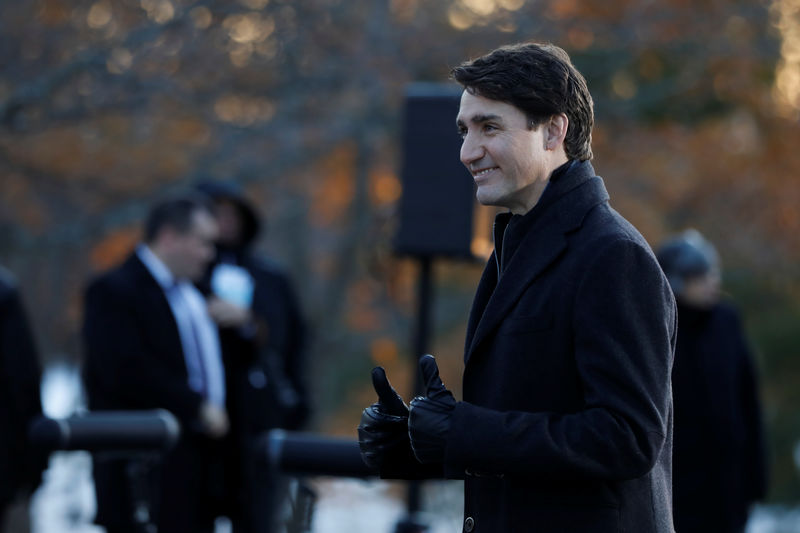By David Ljunggren
OTTAWA (Reuters) - A senior Mexican official on Friday expressed caution about the chances of ratifying a continental trade deal this year, saying more work might be needed to overcome opposition from some U.S. Democrats.
The U.S.-Mexico-Canada Agreement (USMCA), signed almost exactly a year ago, has stalled in Washington amid concerns about the effectiveness of labor and environmental provisions. Mexico is the only country to have ratified the pact so far.
Officials are trying to agree on a series of tweaks to ease passage of the deal, which is designed to replace the 1994 North American Free Trade Agreement (NAFTA). U.S. President Donald Trump has repeatedly accused Democrats in Congress of stalling a vote on USMCA to avoid granting him a political win.
Mexico's deputy foreign minister, Jesus Seade, who held talks in Washington on Wednesday and Ottawa on Friday, told a news conference that "tremendous progress" had been made.
Asked whether the USMCA could be ratified this year, Seade said, "I think it is possible." But, he added, "if there's something complicated that needs to be discussed, and we have to again go back to Democratic legislators and all that, then it could take more time and (go) into next year".
Mexico's exports and foreign direct investment are dependent on access to the U.S. marketplace. Mexico, like Canada, sends most of its goods exports to the United States.
U.S. labor unions have expressed concerns that USMCA provisions aimed at ensuring that Mexico lives up to commitments on labor reforms are not strong enough.
Canadian Prime Minister Justin Trudeau told Seade earlier on Friday that "there is still a little more work to do" on the deal, adding that "Canada is extremely supportive of Mexico's steps towards labor reforms."
Seade said officials were close to fixing a troubled dispute resolution system that had never worked under NAFTA. The solution would also cover labor issues, he added, without giving details.
Under NAFTA, disputes were handed over to panels of experts. Member nations, however, usually declined to name members to those panels, short-circuiting the system, Seade said. The solution, which he did not detail, would ensure that panels were fully staffed.

Seade spoke following talks with Canadian Deputy Prime Minister Chrystia Freeland. Her office did not respond to a request for comment.